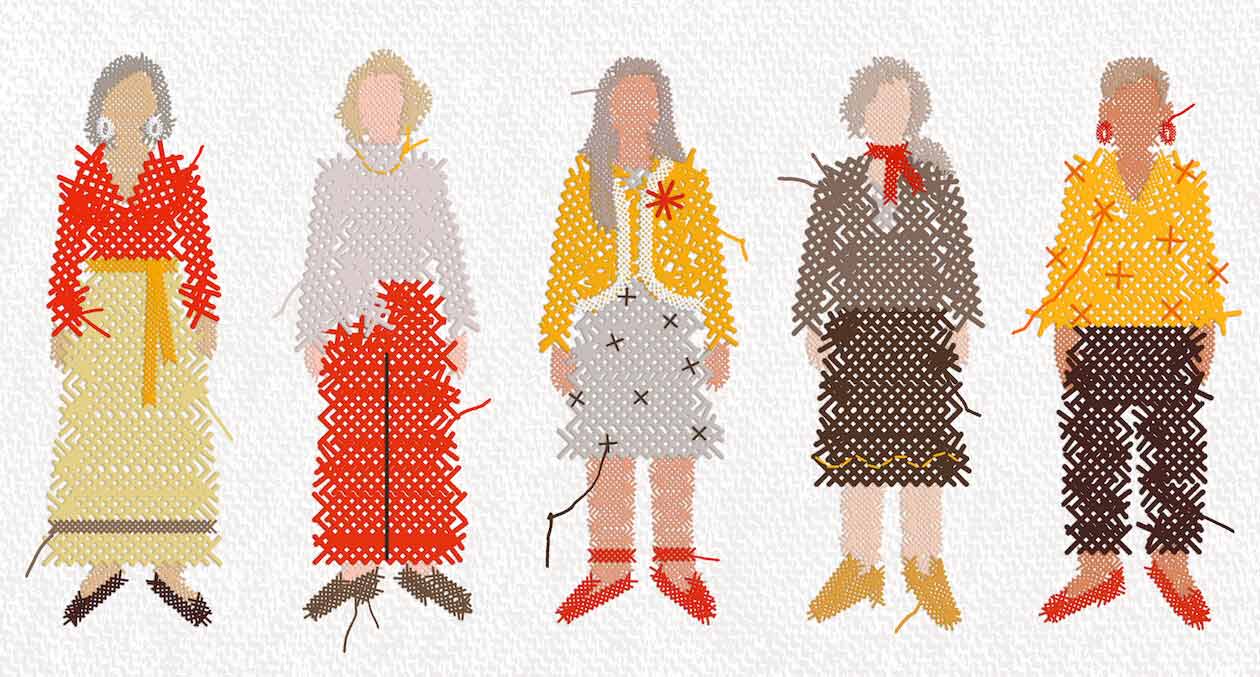


It’s time to stop treating senior citizens as a burden
BY SHARON BUTALA
ILLUSTRATION BY MARIAH LLANES
Against Ageism
On the day that my husband died, I was two weeks short of my sixty-seventh birthday, and I thought that once I got through the terrible grief and the distress of having to leave the rolling grasslands of southern Saskatchewan, where I’d lived for thirty–three years, for Calgary, I would still have time ahead of me in which to enjoy a wonderful new life. Glimmering faintly on the horizon were art galleries; concert halls; the opera; professional theatre; new, like-minded friends; and maybe, some day, even a relationship. But what I didn’t have a clue about was that I was about to be old nor about what being old would mean to my dreams and desires. I suppose this is because, while dreading old age with every fibre, I was, at the same time, in full denial that it would ever happen to me, and so I was shocked down to the soles of my feet when it did…
The day old age strikes, our lives appear comfortable, even privileged, but our hearts are numb with permanently thwarted desire, our throats choked with longing for things we will never have again, and our future, we are sure, is too bleak to contemplate. We stare in terror into the abyss and ask ourselves: Who am I now?
I struggled in the face of all this, as my body changed and grew more fragile no matter what I did to stop it and as younger people started ignoring me or treating me as if I were a not-very-smart, obstinate child. And because of my less robust physicality, and my new single state, I was having to cut away things I used to do: bike riding, cross-country skiing, extensive hiking, adventurous travelling, and participating in many after-dark outings. How on earth was I to find this “wonderful” new life?
What I was facing is ubiquitous but fairly new in the span of human history. Even as recently as the early 1900s, when we all died at much younger ages, people over sixty were fairly rare and, in Western society, easy to ignore. But today, nearly 6 million Canadians are senior citizens. Never before in North American history have older adults formed such a large proportion of the population. And since women tend to live longer than men, the older the age group, the higher the percentage of females. Women like me, now in our late seventies and alone for the first time in many years, find ourselves socializing almost exclusively with women and rarely meet a single male (whether we are interested in finding one or not). We have to rethink what we value because so much of our life has reached fruition; we’ve worked to fulfill career goals, buy the dream house or country cottage, meet new partners, start new families, get doctorates, and live securely as respected, useful elders within our own multi-aged clans. Now we have to find meaning in places we might not have bothered about when we were younger and half of a couple: solitude, friendship, bird and animal watching, and a closer following of music, painting, and theatre. This replacement alone can be a soul-wrenching shift that forces us to ask ourselves: What matters now?



